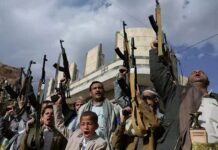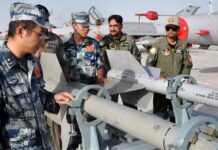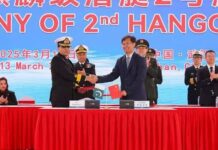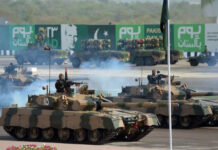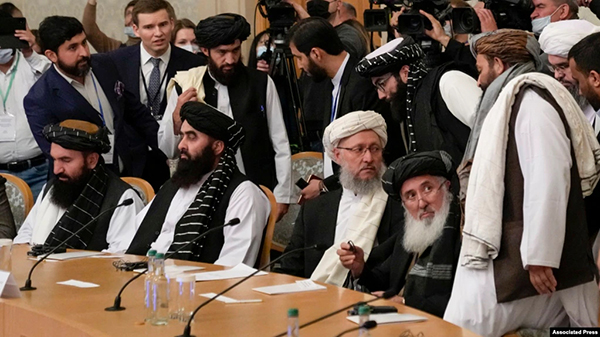
Moscow Talks, 20 October 2021
Moscow-hosted an international meeting to discuss the Afghan crisis with Taliban leaders and delegates from 10 countries, including China, Pakistan, Iran and India, on 20 October, in an effort to boost its influence across Central Asia. The talks came after Putin warned that Islamic State (IS) fighters were converging on Afghanistan.
The talks followed a G20 summit on Afghanistan — held on 12 October — to help the country avert a humanitarian catastrophe in the wake of the power shift there.
Russia’s Concerns
Russia is concerned about the impact of the Taliban seizing to power in Afghanistan in the wider region. Moscow has moved to engage the Taliban, but has stopped short of granting recognition to the group which is banned as a “terrorist” organisation in Russia. Unlike Western countries that rushed to evacuate diplomats following the fall of Kabul on August 15, Russia has kept its embassy there open.
A week before the meetimg, Russian President Vladimir Putin warned that IS fighters were gathering in Afghanistan to spread into former Soviet republics and eventually Russia. Putin cautioned that around 2,000 fighters loyal to the “Islamic State” had gathered in northern Afghanistan, adding that their leaders planned to send them into neighboring Central Asian countries disguised as refugees.
Foreign Minister Sergey Lavrov made it clear in the run-up to the Moscow meeting that the discussions would not cover the issue of granting recognition to the Taliban, stressing the need for the group to live up to “expectations” on human rights.
Russia has lauded the efforts of Afghanistan’s Taliban government to improve the national security and political situation but stressed the need for the Islamist group to ensure inclusivity in its governance to achieve a stable peace in the war-torn country.
Lavrov said Moscow believes it’s time to mobilize global efforts to provide Kabul with effective financial, economic and humanitarian assistance to help prevent a humanitarian disaster in Afghanistan.
Lavrov emphasized the importance of respecting human rights and pursuing well-balanced social policies, adding that he discussed those issues with the Taliban before the talks. He added that Russia would dispatch a shipment of humanitarian aid to Afghanistan and urged the international community to quickly mobilize resources to prevent a humanitarian crisis.
Russia says its diplomatic offensive to garner support for Kabul stems from concerns continued instability would encourage terrorist groups to threaten security of Afghanistan’s neighbors and the wider region.
Lavrov highlighted those fears while addressing the gathering in Moscow and urged the Taliban to deliver on their pledges of preventing terrorist groups from threatening Russia’s “friends and allies.”
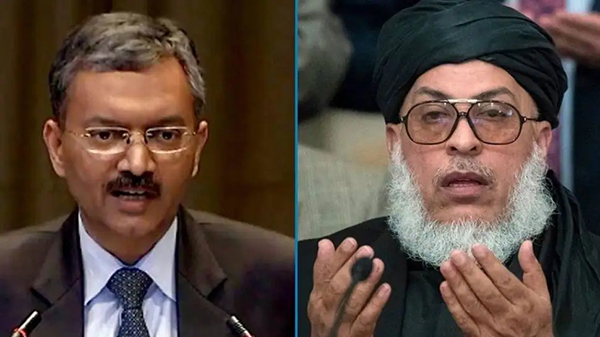
Taliban’s Appeal
This was the Taliban’s most significant international meeting since seizing power over Afghanistan in mid-August. This was the first opportunity for the Taliban to get a hearing in order to get economic aid and international recognition that has eluded since they stormed into Kabul two months ago. Taliban Deputy Prime Minister Abdul Salam Hanafi, while addressing the meeting, renewed a call for the global community to recognize the new government in Kabul and again demanded the United States unfreeze about $10 billon in Afghan central bank in foreign reserves.
The senior Taliban leader defended his interim government as “already inclusive” and said they would not accept any deal under pressure, according to the text of the speech Taliban spokesman Zabihullah Mujahid shared with media.
Washington Absent
The U.S. and other Western countries are working out how to engage with the Taliban without giving them the legitimacy they seek, while facilitating the flow of humanitarian aid to Afghans.
Washington also was invited to the talks in Moscow, but U.S. officials cited logistical reasons for not attending them. United States deputy secretary of the treasury, Adewale Adeyemo said the US Treasury was taking every step it could within its sanctions program to make clear to humanitarian groups that Washington wants to facilitate the flow of aid into Afghanistan.
Chinese officials renewed their resolve to work with the Taliban to help them deal with the economic and humanitarian challenges facing the country.
Charges Against Taliban
The Taliban’s resurgence has stirred international fears of a return to their hardline form of Islamist rule in the 1990s, when they hosted Osama bin Laden’s al Qaeda movement and carried out egregious human rights violations, including public stonings and the marginalization of women at work and in schools.
The Taliban regained control of Afghanistan in August after the United States and Western countries withdrew all their troops almost 20 years after the Islamist group was removed from power by the U.S.-led military invasion for harbouring al-Qaida planners of terrorist attacks on America.
The Taliban are under fire at home and internationally for reneging on some of their pledges to protect the rights of women and minorities.
The hardline group is also being accused of persecuting members of the ousted Afghan government, charges Taliban officials reject as unfounded and politically motivated propaganda.
Official Statement
Russia, China, Pakistan, India, Iran and five formerly Soviet Central Asian states joined the Taliban in calling for the UN to convene such a conference as soon as possible to help rebuild the country. They said it should take place “with the understanding, of course, that the main burden…should be borne by the forces whose military contingents have been present in this country over the past 20 years.”
At the end of discussions, a statement was issued saying: “Participating countries call on the current Afghan leadership to take further steps to improve governance and to form a truly inclusive government that adequately reflects the interests of all major ethno-political forces in the country.”
The statement also stressed the need for the Afghan leadership to “respect the rights of ethnic groups, women and children.”
While governments around the world, including Russia, have declined to give official recognition to the Taliban government, the communique recognized the “new reality” of their ascent to power.
India’s Role
India will play a key role in the coming days on the all-important question of according recognition to the Taliban, which now finds itself in a weaker position after blasts in mosques on two successive Fridays, in October, claimed about 150 lives.
The Taliban’s credibility as the sole guarantor of security in Afghanistan suffered a blow when three back-to-back bomb attacks at a famous mosque in its spiritual capital of Kandahar killed 47 persons. On 8 October, an explosion in a Kunduz mosque killed over 100 worshippers.
Senior Indian diplomats participated in talks with Taliban in Moscow, on 20 October, along with diplomats from Russia, China, Pakistan and Iran. India’s ambassador to Qatar, Deepak Mittal, had met Taliban representatives in Doha towards the end of August
India holds a view different from the other participants at the October 20 Moscow talks on providing humanitarian aid but is on the same page as Russia, Iran and China on persuading the Taliban to form an inclusive government and ensure there is no spillover of extremism to other countries.
The interaction of Indian diplomats with the Taliban can help the former take a view on removing their senior ministers from UN blacklisting. India is the chair of the UNSC’s sanctions committee till the end of next year.
After Kabul’s fall in August, India raised questions on the lack of inclusivity in the new Taliban regime, rights of minorities, women and children, and also voiced concern on terrorism emanating from Afghanistan.
In March 2021, Moscow hosted an international conference on Afghanistan in which Russia, United States, China and Pakistan released a joint statement, calling on the then-warring Afghan sides to reach a peace deal.
Comments
Russia’s initiative in hosting the talks is part of an effort to boost its influence in the region after the US pullout. Its main fear is the risk of instability in Central Asia, and possible migrant flows and Islamist militant activity directed from Afghanistan.
The concerns have intensified after a series of attacks by the Afghan affiliate of Islamic State — dubbed Islamic State in Khorasan Province after an ancient name for the region — on mosques and other targets that have killed hundreds of people.
Russia fought its own disastrous war in Afghanistan in the 1980s and has close military and political ties with former Soviet Central Asian republics that border Afghanistan.





